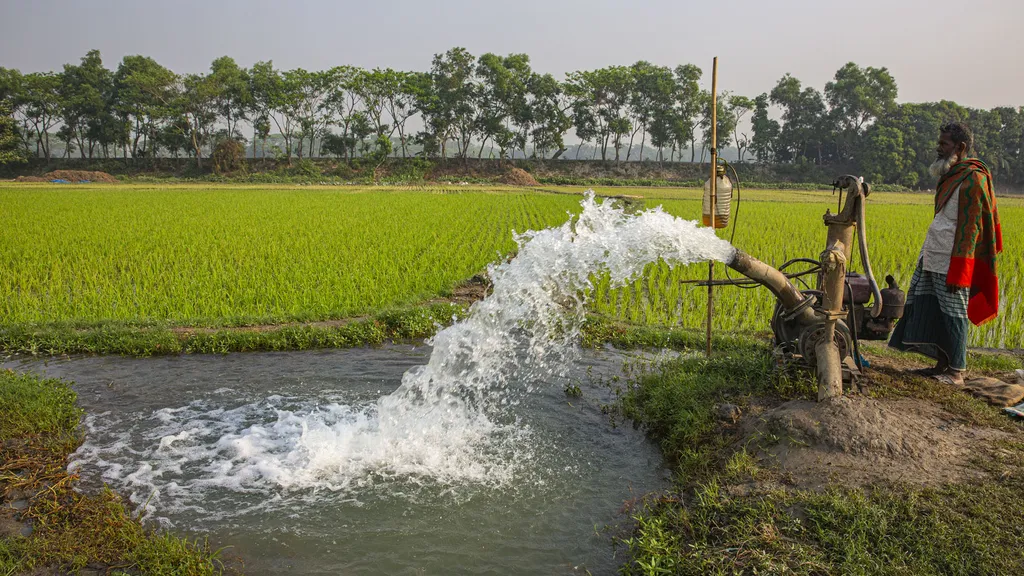In the heart of Bangladesh, researchers are pioneering a solution that could revolutionize the way we approach agriculture, with significant implications for the energy sector. Mohammad Mohiuddin, a researcher from the Department of Electronics and Telecommunication Engineering at Chittagong University of Engineering and Technology (CUET), has led a study that introduces an intelligent irrigation and monitoring system. This system, powered by the Internet of Things (IoT), aims to optimize water usage and energy consumption in agriculture, a sector that accounts for a substantial portion of global water and energy use.
The system is designed to automate water pump management and monitor environmental conditions such as sunlight, temperature, and humidity. “Traditional irrigation techniques often lead to overwatering or underwatering, which not only wastes water but also energy,” Mohiuddin explains. “Our system aims to address these issues by providing real-time data and automating the irrigation process.”
The hardware components of the system include a soil moisture sensor, a sunlight sensor, temperature and humidity (DHT11) sensors, an ESP32 microcontroller, and a pump motor. The sensors collect data from the field and send it to the ESP32 microcontroller. The microcontroller then compares the received data to the previously stored data. If the values exceed the threshold, the associated devices turn on, and the sensor values and pump motor condition are updated to the Ubidots server, a cloud-based IoT platform.
The potential commercial impacts of this research are substantial. In the energy sector, efficient water management can lead to significant energy savings. Pumps and other irrigation equipment consume a considerable amount of energy, and optimizing their use can reduce energy consumption and costs. Moreover, the system’s ability to monitor environmental conditions can help farmers make informed decisions about their crops, leading to increased productivity and profitability.
The research, published in ‘Engineering Proceedings’ (translated from the original title in Bengali), highlights the growing trend of smart agriculture. As the world population continues to grow, the demand for food will increase, and traditional farming methods may not be sufficient to meet this demand. Smart agriculture, with its focus on efficiency and sustainability, could be the key to feeding the world’s growing population.
This research could shape future developments in the field by encouraging more farmers and agricultural businesses to adopt IoT-based solutions. As Mohiuddin notes, “The future of agriculture lies in smart technologies. By embracing these technologies, we can create a more sustainable and efficient agricultural sector.”
In conclusion, this research is a significant step towards a more sustainable and efficient future for agriculture and the energy sector. By optimizing water and energy usage, the intelligent irrigation and monitoring system could help farmers increase their productivity and profitability while reducing their environmental impact. As the world continues to grapple with the challenges of climate change and population growth, such innovations will be crucial in ensuring food security and sustainability.

